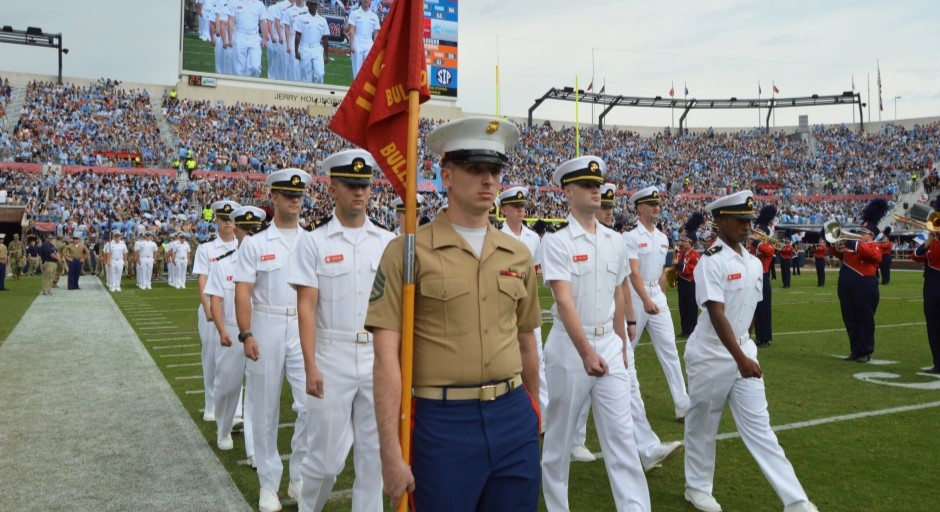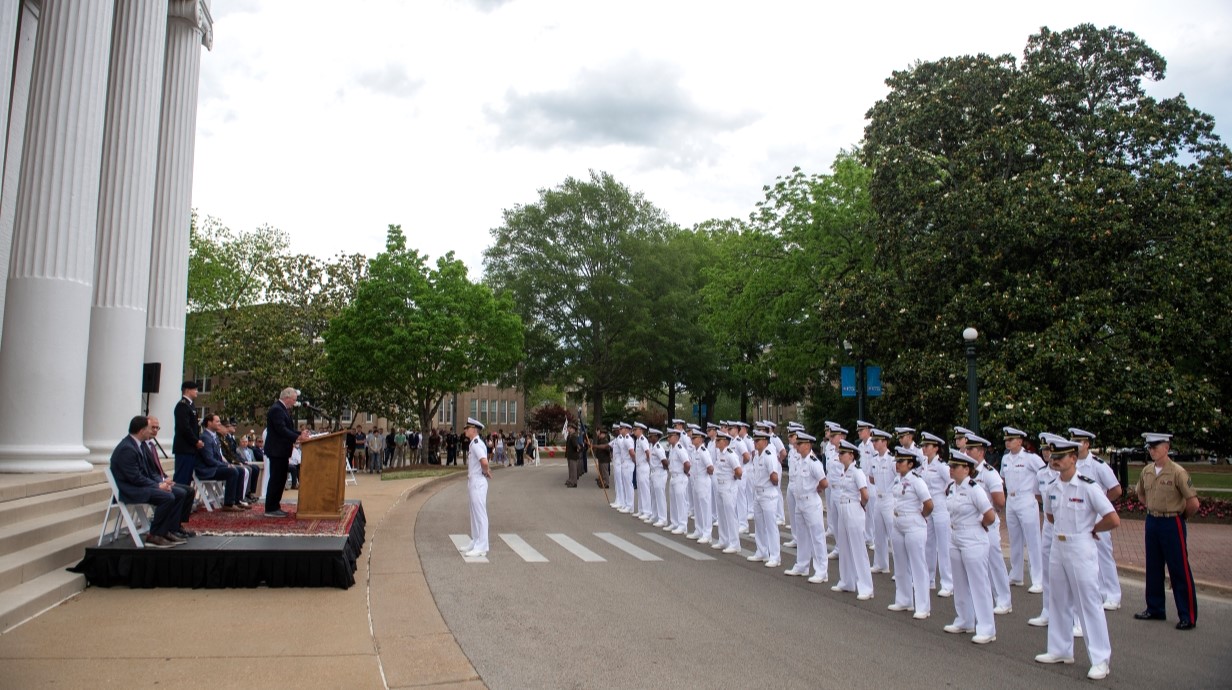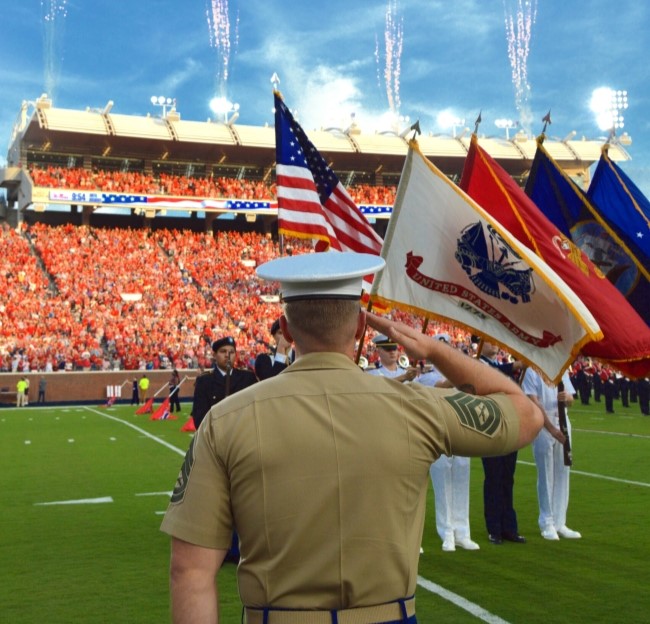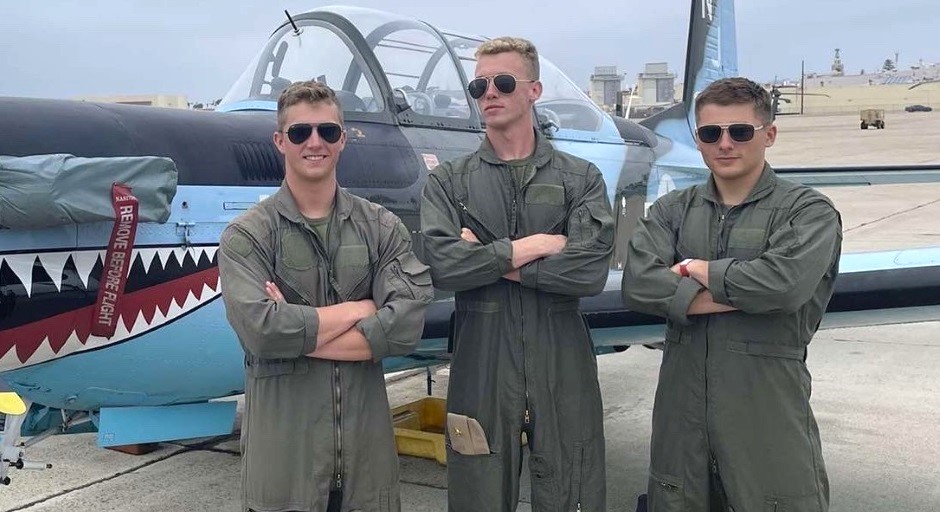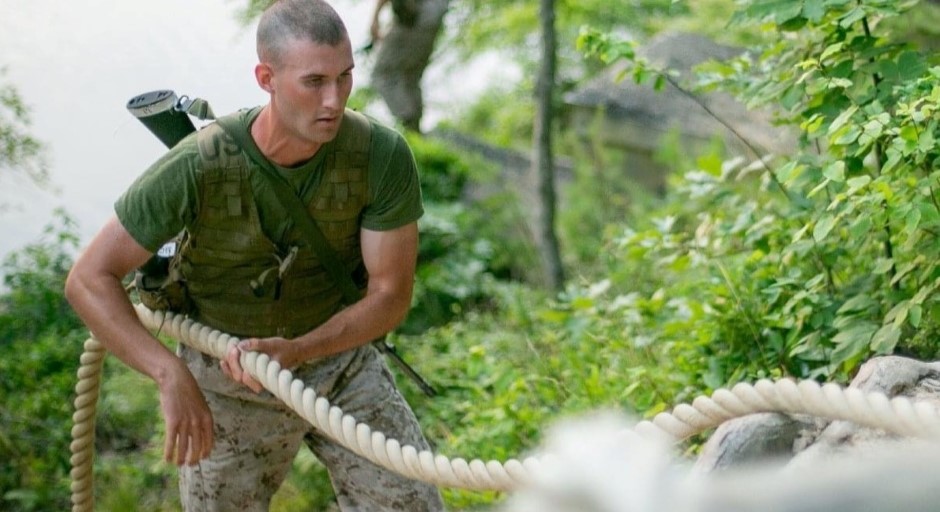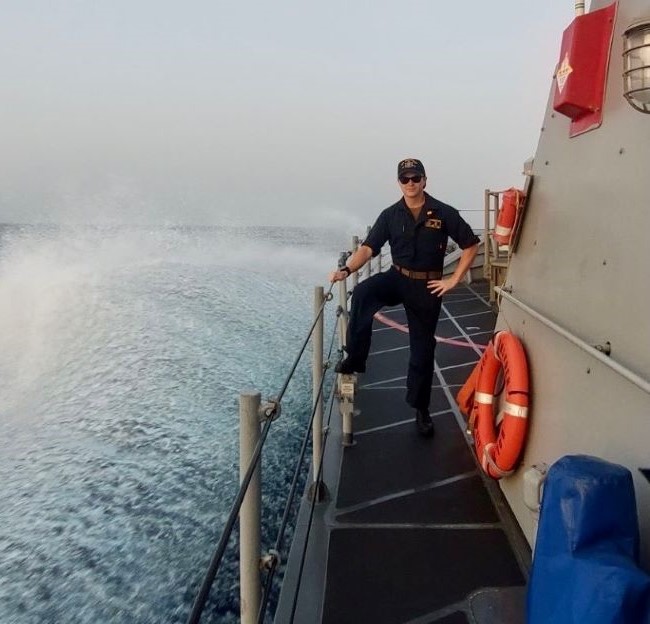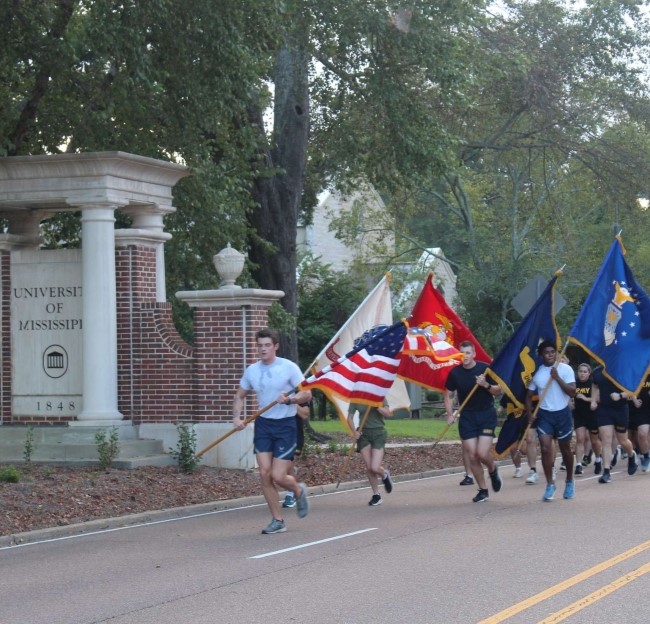NROTC Program
Academic requirements for the Naval ROTC Program.
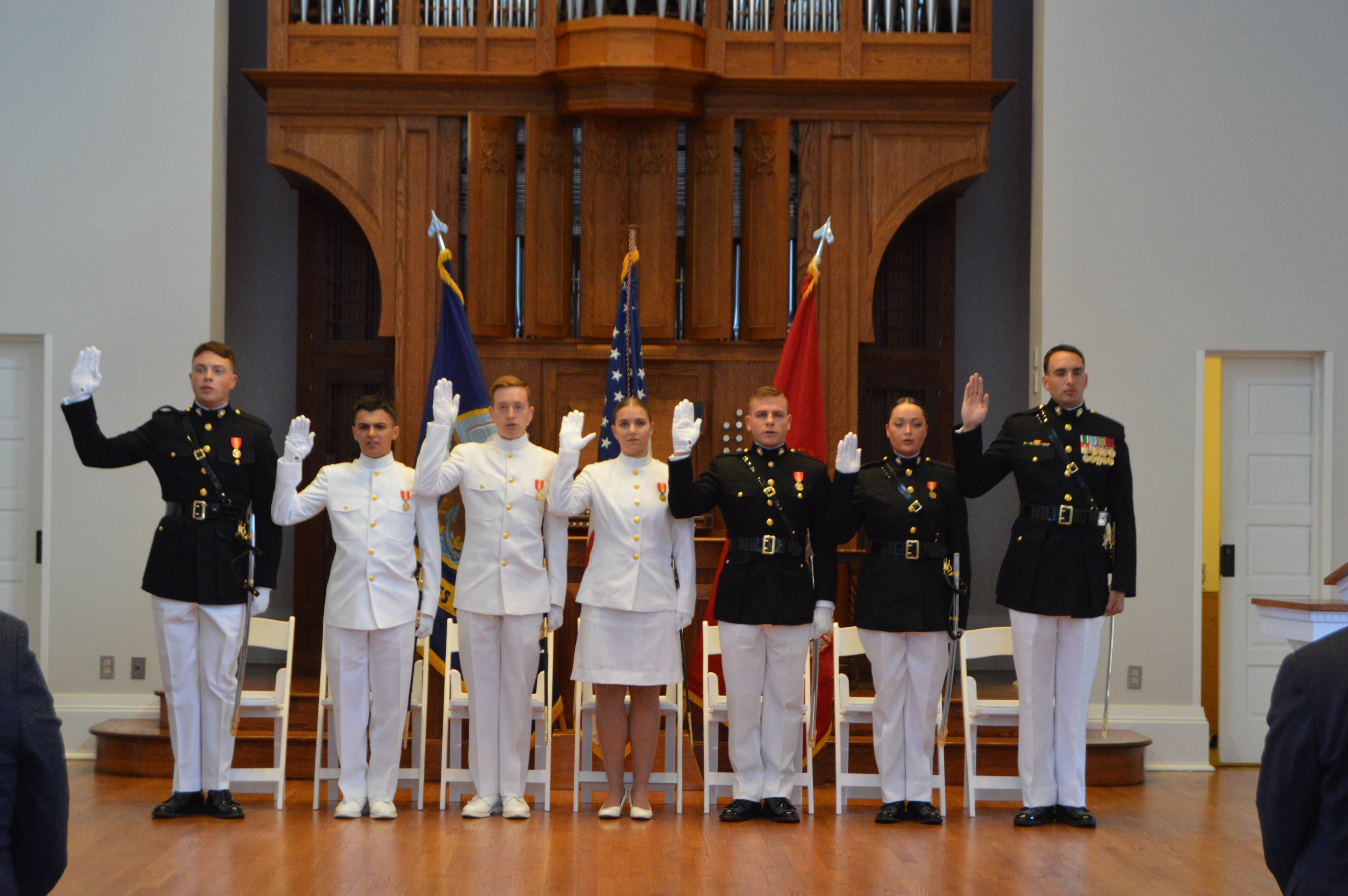
What's in the Program?
The NROTC Program has requirements ranging from academic to practical. Midshipmen take a number of courses while in NROTC (listed below) as well as are required to attend summer cruises to gain real-world experience and training in the Navy and Marine Corps.
Academic Requirements
| Year | Course | NSC | Navy | USMC | MECEP | Nurse |
|---|---|---|---|---|---|---|
| 4/C | Introduction to Naval Science | 111 | ||||
| Sea Power and Maritime Affairs | 112 | |||||
| 3/C | Leadership and Management | 211 | ||||
| Navigation | 212 | |||||
| 2/C | Naval Ship Systems I (Engineering) | 312 | ||||
| Naval Ship Systems II (Weapons) | 313 | |||||
| Evolution of Warfare | 310 | |||||
| 1/C | Naval Operations and Seamanship | 413 | ||||
| Fundamentals of Maneuver Warfare | 410 | |||||
| Leadership and Ethics | 412 | |||||
| All Terms | Leadership Laboratory | x15 / x16 |
Degree Completion
These are University courses that are required by those either on Scholarship or College Program.
- 8 hours Calculus (by end of Sophomore year)
- 8 hours Calculus based Physics (by end of Junior year)
- 3 hours Cultural Awareness
- 3 hours American Military History or National Security Policy
- 6 hours English (grammar and composition)
- 6 hours College Algebra or higher
- 6 hours Physical Science
- 3 hours Cultural Awareness
- 3 hours American Military History or National Security Policy
- 6 hours English (grammar and composition)
- 3 hours American Military History or National Security Policy
- 6 hours English (grammar and composition)
What to Expect...
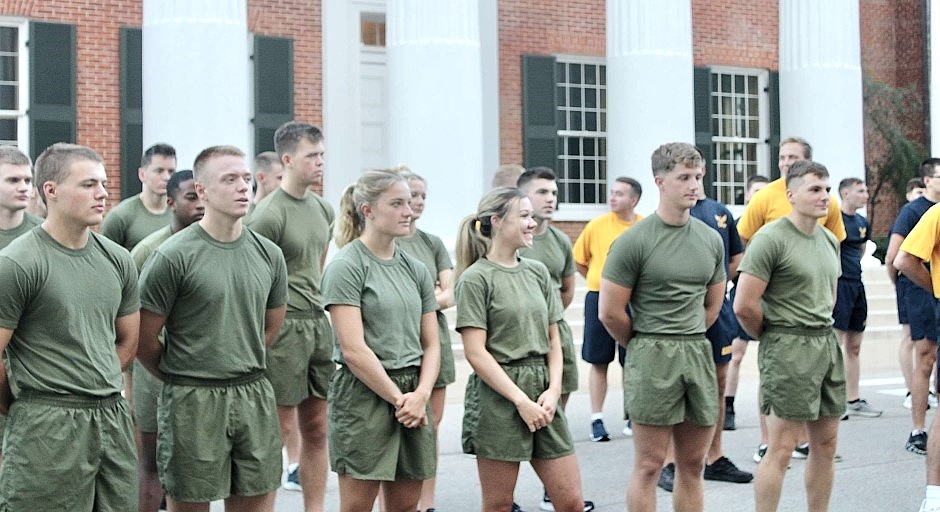
Freshman Year
Freshmen (4/C) Midshipmen have their first exposure to the NROTC unit at New Student Orientation (NSO). Their first semester consists of the Introduction to Naval Science course along with establishing a baseline for their physical fitness and mental and moral aptitude. The following summer, scholarship Midshipmen attend CORTRAMID, where each week they will be exposed to different communities within the Navy and Marine Corps.
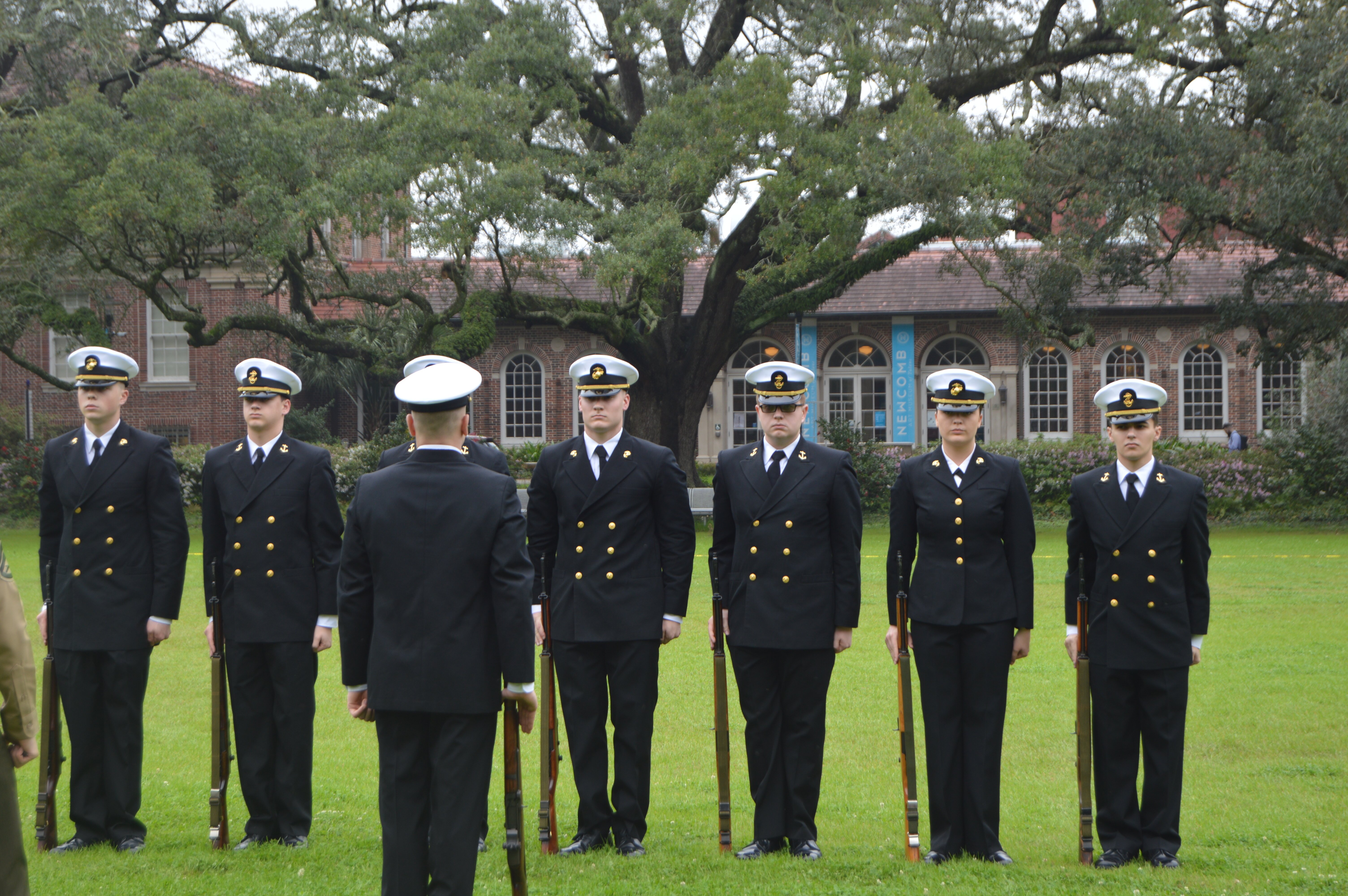
Sophomore Year
Sophomore (3/C) Midshipmen are introduced to their first leadership roles within the NROTC unit. Their Naval Science academic courses' curriculum also begins to extend to practical knowledge such as ship navigation and leadership skills. The following summer, Navy option Midshipmen either attend a surface or submarine cruise and Marine option Midshipmen attend Fleet Marine Forces (FMF)
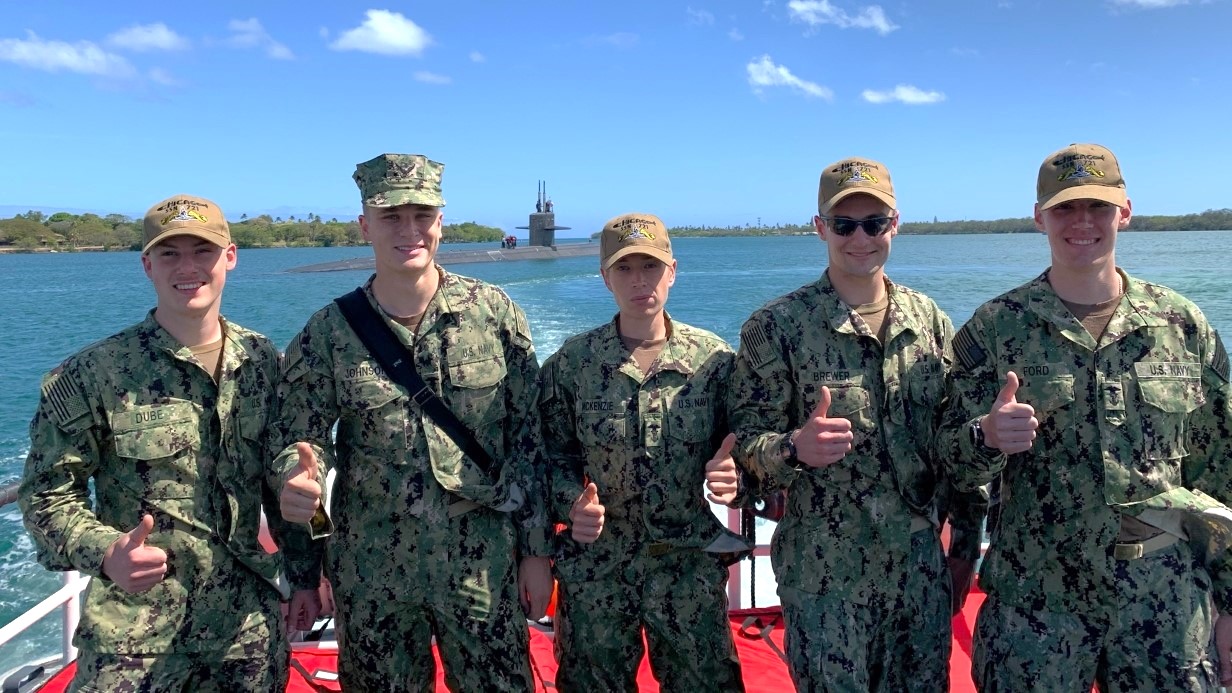
Junior Year
Junior (2/C) Midshipmen take on the roles of upperclassmen where they attain higher leadership roles with the NROTC unit. The following summer, Navy option Midshipmen can attend a number of cruises (see below) and Marine option Midshipmen attend Officer Candidate School (OCS).
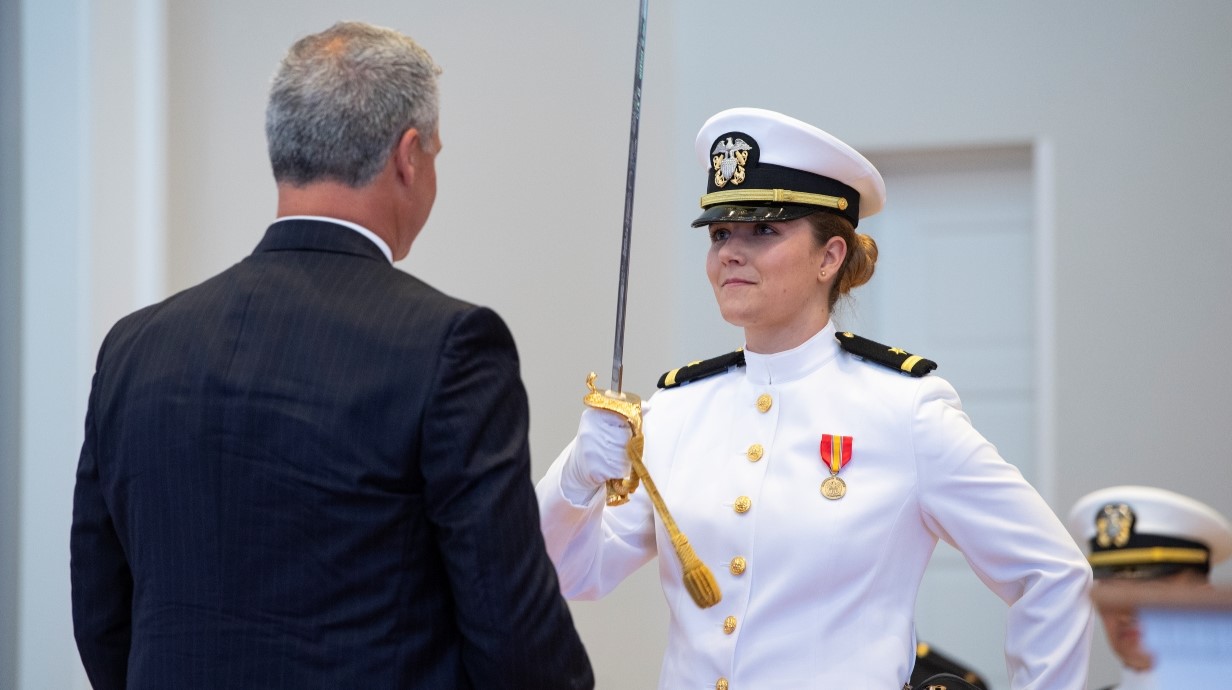
Senior Year
Senior (1/C) Midshipmen are the highest ranking in the NROTC unit and hold titles such as Midshipman Commanding Officer. While in their final year, their professional and military lives begin to take shape as Navy option Midshipmen submit and receive their requests for service selection and Marine option Midshipmen, having recently graduated from OCS, submit their Request for Appointment (RFA). After this year, Midshipmen are commissioned as officers in the United States Navy and Marine Corps!
Summer Cruise
Each summer, Midshipmen are sent to various places around the country - or even the globe - to conduct training and familiarization with their future roles in the Navy and Marine Corps. See what happens each summer:
Summer before Freshman year*
Before scholarship Midshipmen arrive at the Unit at the start of their first freshman semester, they attend NSI, a 3-week course at Naval RTC Great Lakes in Illinois to instill the standards of a Midshipman.
*Depending on scholarship activation or by request, this can also occur after freshman year.
Summer after Freshman year
CORTRAMID
Career Orientation Training for Midshipmen (CORTRAMID) is a 4-week long summer training event that exposes rising 3/C and 2/C scholarship students to their career opportunities in both the Navy and Marine Corps. A full week is devoted to the Aviation, Surface, and Submarine communities of the Navy as well as a full week of Marine Corps exposure where Midshipmen have the chance to ask questions and experience each field first-hand. CORTRAMID training is conducted in both San Diego, CA and Norfolk, VA.
Summer after Sophomore year
NAVY OPTION
Surface and Submarine
Scholarship Midshipmen entering into their Junior year will have the opportunity to be attached to a surface ship or a submarine for part of the summer. Rising 2/C Midshipmen are assigned to an enlisted mentor to familiarize students with life at sea, shipboard organization, ship systems, evolutions, and safety requirements underway and in port.
FOREX
The summer before their Junior or Senior year, Midshipmen are able to apply for a Foreign Exchange (FOREX) cruise where you will spend part of the summer attached to a surface ship of a U.S. ally’s Navy.
Note that Aviation Cruise is not offered to rising 2/C Midshipmen
MARINE OPTION
Fleet Marine Forces (FMF)
Marine option Midshipmen entering their junior year will attend FMF and to learn about infantry tactics, JTAC, weaponry, amongst other tactical aspects of the Marine Corps.
Summer after Junior year
NAVY OPTION
Surface and Submarine
Scholarship Midshipmen entering into their Senior year will have the opportunity to be attached to a surface ship or a submarine for part of the summer. Rising 1/C Midshipmen are assigned to a junior officer to prepare midshipmen for commissioned service through active participation in the duties and responsibilities of an officer at sea.
Aviation
After completing and obtaining a qualifying score on the ASTB, scholarship Midshipmen entering their 1/C year may apply to be attached to an aviation squadron for part of the summer. During this training, Midshipmen learn about the everyday duties and responsibilities of Naval Aviators and Naval Flight Officers and even have the opportunity to fly some of the aircraft.
SOAS
Midshipmen entering their 1/C year who are interested in the Special Warfare community can apply for SEAL Officer Assessment and Selection (SOAS) in Coronado, CA. This 2-week assessment entails a variety of evolutions that test the candidate’s physical tenacity, mental fortitude, and leadership skills. This program must be completed in order to advance to the next phase of selection.
FOREX
The summer before their Junior or Senior year, Midshipmen are able to apply for a Foreign Exchange (FOREX) cruise where you will spend part of the summer attached to a surface ship of a U.S. ally’s Navy.
MARINE OPTION
Officer Candidate School (OCS)
Marine Option Midshipmen are required to attend Officer Candidate School (OCS) during the summer before their Senior year. This 6-week course is where mind, body and character are screened, evaluated and honed to a razor-sharp point. Where leadership is measured not by how well you follow procedure, but how you lead in conditions of uncertainty. Where decisiveness, judgment, initiative and moral courage are tested in the midst of chaos, exhaustion, indecision and scrutiny.
Lawrence Livermore National Laboratory Internship
As an active Reserve Officer Training Corps (ROTC) member, or recent grad awaiting EAD, you have the chance to explore leading-edge science as a paid intern at LLNL. Partner with world-class researchers to help solve challenges such as:
- Weapons theory, design, engineering
- Nonproliferation
- Counterterrorism
- Biological warfare
- Energy security
- Warfighter support
- Intelligence analysis
- Information science
- Space exploration
Project Global Officer (GO)
Project GO is a nationwide program open to all qualified ROTC students offering fully-funded opportunities in critical language education, overseas study, and cross-cultural experience. Through Project GO, future military officers develop linguistic and cross-cultural communication skills required for effective leadership for all Services in the 21st century operational environment. Since 2007, Project GO has provided approximately 8,500 students with opportunities to study culture and 19 languages in 29 countries around the world.
Frequently Asked Questions
There are no requirements for dorm selection. The ROTC unit is located directly next to the student union. For this reason, many students decide to live in the dorms located off Women’s Terrace.
A list of the dorms on campus with additional information can be found here.
NROTC will not provide a roommate for you, but we do encourage finding a roommate with a similar work/sleep schedule.
Yes. You must take at least 15 credits per semester to be enrolled in the program, 4 of which are from NROTC classes. Most students take 18-19 credits per semester (4 of which are naval science) in order to graduate in 8 semesters and to minimize winter and summer classes.
There are a variety of areas incoming students can work on to prepare themselves. Below are a few areas that many new students struggle in after reporting.
- Physical fitness- We do not strive for the minimum in the Naval Reserve Officer Training Corps. You are expected to surpass these minimums and excel. This is doable through the unit physical training as well as working out on your own.
- Academic excellence- NROTC students take an additional four credits per semester compared to their peers. Brush up on calculus and physics topics prior to arrival as a freshman to ensure you pass these classes on the first try.
- Time management skills- you will be a full time student as well as a Midshipmen and will be expected to be successful in both. Staying on top of your work is key to being successful.
- Communication- proper etiquette when addressing active duty staff members through emails and in person. Being punctual when communicating through email is a point of friction that many midshipmen struggle with shortly after reporting to the unit.
- Military bearing and knowledge- it is never too early to read about the opportunities the Navy and Marine Corps has to offer. This can be accomplished by looking through the Chief of Naval Operations’s recommended reading list.

